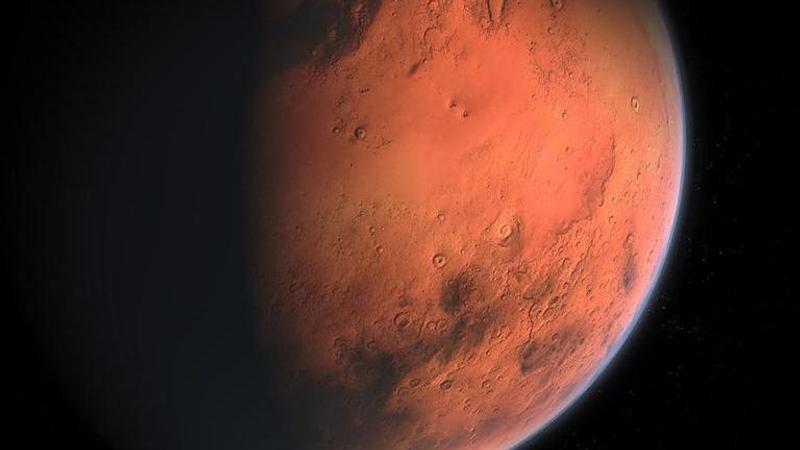Published 19:17 IST, May 12th 2020
Research: Salty water might exist on Mars but conditions 'preclude life as we know it'
A Southwest Research Institute scientist recently modelled the atmosphere of Mars and found that the planet is not likely to be habitable by a life of any kind.

A Southwest Research Institute scientist recently modelled the atmosphere of Mars and found that the planet is not likely to be habitable by life of any kind, including humans. According to the research published in Nature Astronomy, the scientists concluded that the salty pockets of water present on the Red Planet are likely not habitable by life as we know it on Earth.
The team of researchers, which also included scientists from Universities Space Research Association (USRA) and the University of Arkansas, helped allay planetary protection concerns about contaminating potential Martian ecosystems. As per the research, the scientists believe that due to the low temperatures and dry conditions in Mars, a droplet of liquid water on its surface would instantly freeze, boil or evaporate, unless the droplet had dissolved salts in it.
According to the press note, Dr Alejandro Soto, a senior research scientist and co-author of the study said, “Our team looked at specific regions on Mars -- areas where liquid water temperature and accessibility limits could possibly allow known terrestrial organisms to replicate -- to understand if they could be habitable”.
He added, “We used Martian climate information from both atmospheric models and spacecraft measurements. We developed a model to predict where, when and for how long brines are stable on the surface and shallow subsurface of Mars”.
‘Reduce risk of exploring Mars’
As per the research, the scientists found that the Mars’ hyper-arid conditions require lower temperatures to reach higher relative humidities and tolerable water activities, which are measures of how easily the water content may be utilised for hydration. The researchers noted that the maximum brine temperature expected is -55 F, at the boundary of the theoretical low-temperature limit for life.
Furthermore, the research team also concluded that even extreme life on Earth has its limit. Soto said, “we found that brine formation from some salts can lead to liquid water over 40% of the Martian surface but only seasonally, during 2% of the Martian year. This would preclude life as we know it”. According to the research, pure liquid water is unstable on the Martian surface. The scientists also pointed that the model showed that the stable brines can form and persist from the equator to high latitudes on the surface of Mars for a few per cent of the year for up to six consecutive hours.
Soto said, "These new results reduce some of the risk of exploring the Red Planet while also contributing to future work on the potential for habitable conditions on Mars”.
(Image: Pixabay)
Updated 19:17 IST, May 12th 2020




